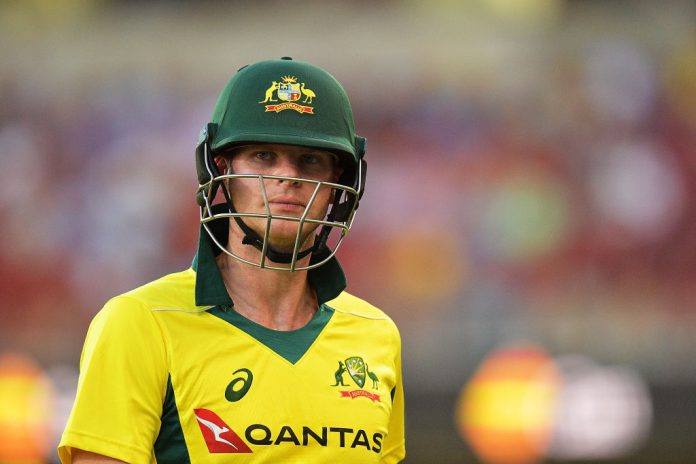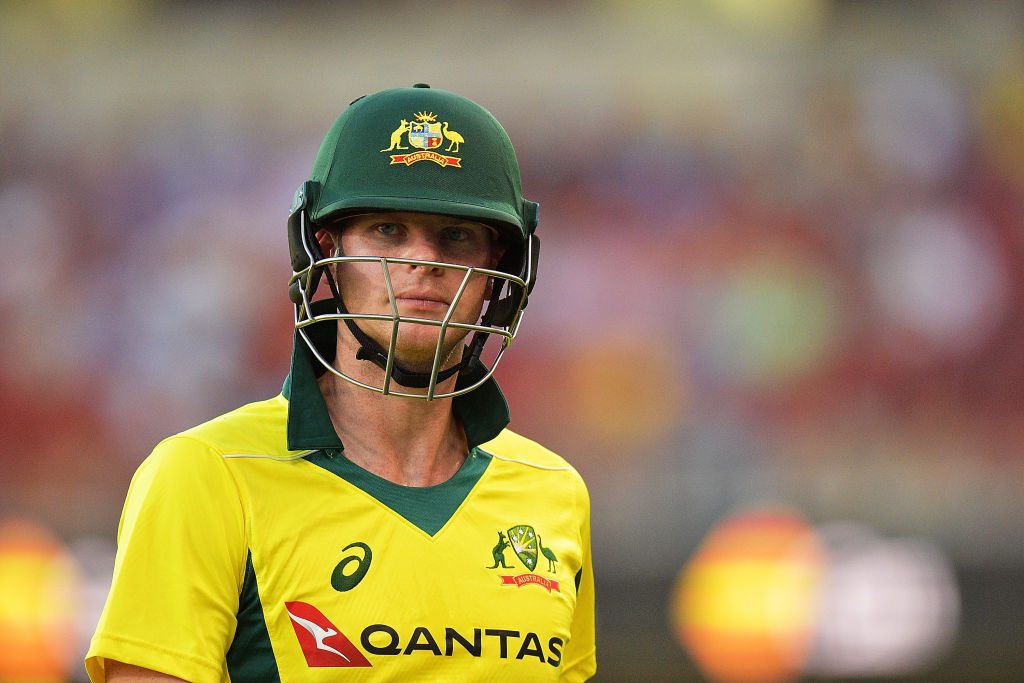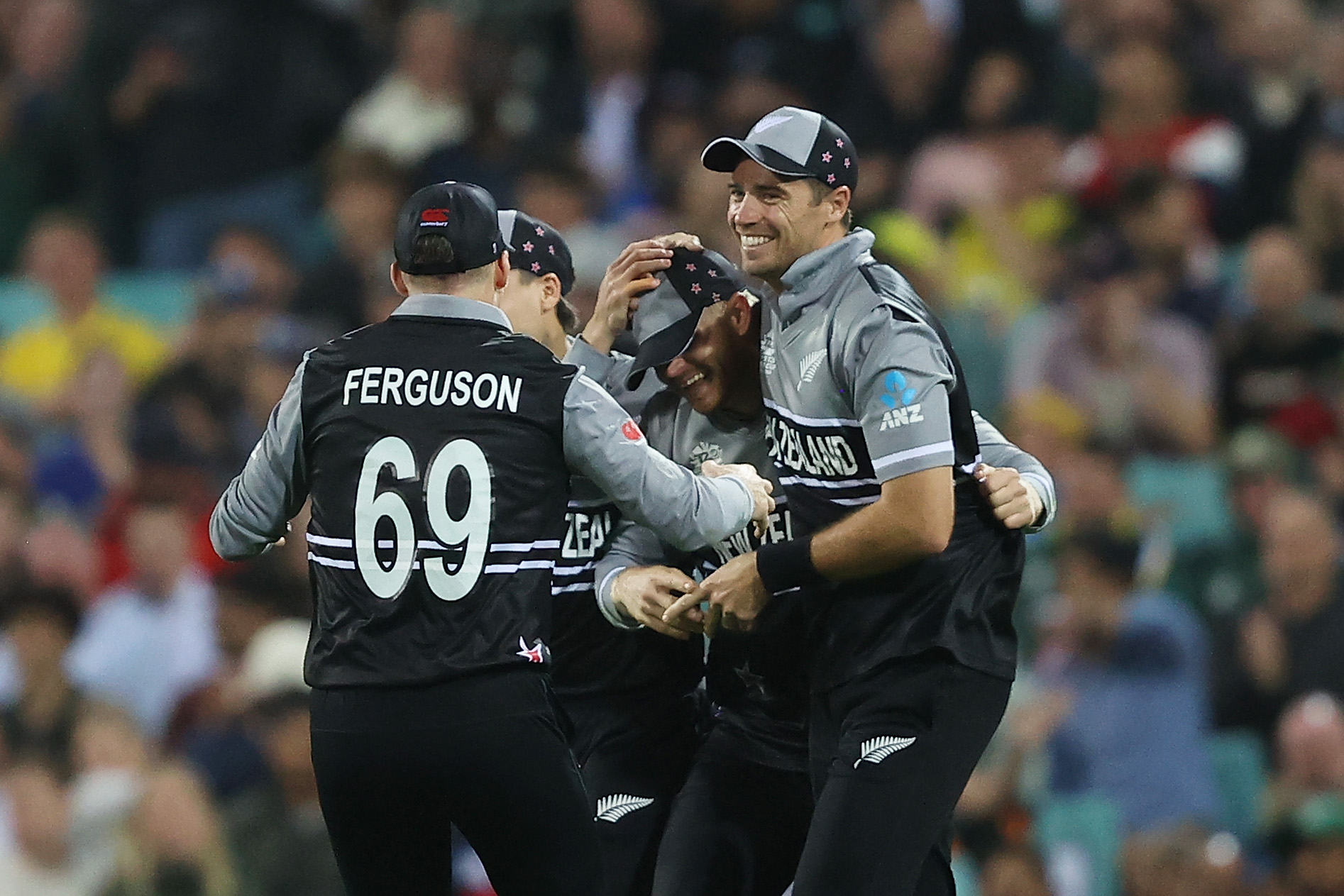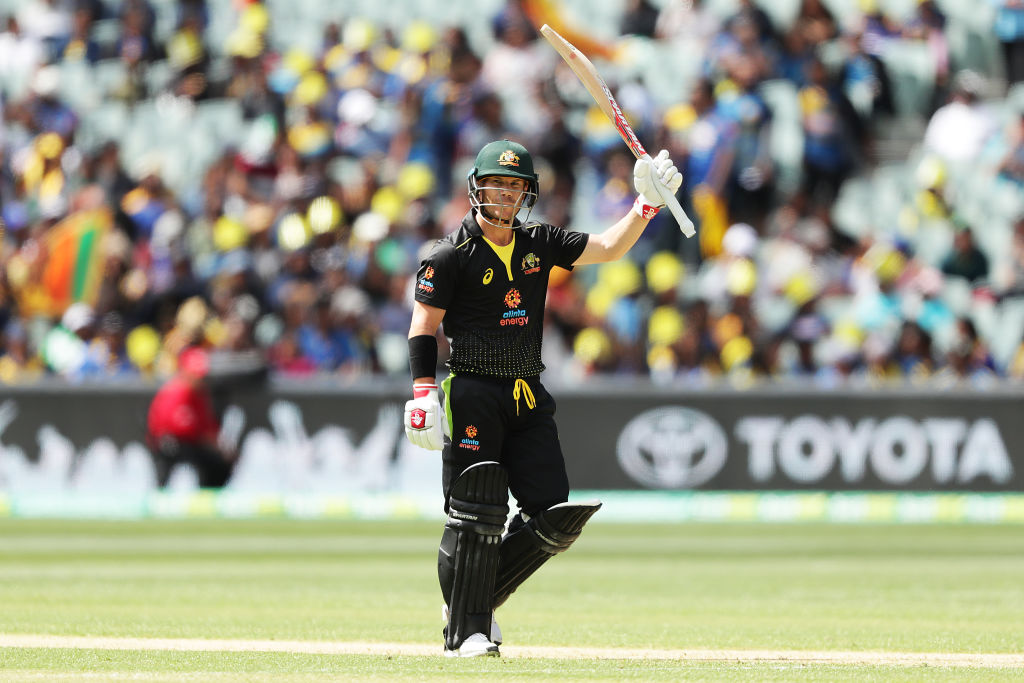

When Australia walk out this evening in Melbourne against England for their third match at the T20 World Cup, it's likely they will go in without any forced changes again despite an indifferent start to the tournament.
Ashton Agar was the only change for the second match of the tournament in Perth against Sri Lanka, and that was only because Adam Zampa was unable to play as the coronavirus took hold.
It's understood Zampa will return to play England on Friday.
The virus is now inside the Aussie camp as well, with Matthew Wade a possible exclusion on Friday evening after he tested positive on Thursday, although his symptoms are mild and word from team training on Thursday is that he is expected to play, despite Glenn Maxwell being pictured running through wicketkeeping drills.
But away from that, this is a team who are trying to play a brand of cricket that worked 12 months ago, but doesn't work nearly as well on Australian grounds.
You can hardly knock Australia for doing what they are doing - which is exactly how they won this tournament for the first time 12 months ago in the United Arab Emirates.
That is, playing extremely aggressive cricket and having a team filled with all-rounders who can find the boundary.
But that doesn't mean you can't be adaptable, and in Australian conditions, you simply have to be.
We have already seen at this tournament that pitches are doing enough to make boundary hitting immediately a challenge, while the grounds are bigger in Australia.
Much bigger.
This isn't the sub-continent where flat pitches that take spin are being rolled out and finding the boundary is as easy as a simple mishit down the ground.
That was all too clearly on display at the Sydney Cricket Ground on Saturday evening as Australia fell in the tournament opener by a staggering 89 runs to New Zealand, leaving their qualification hopes on the brink.
They have been brought back into the fold by a win over Sri Lanka - albeit one that should have come a lot faster as Aaron Finch struggled to get going - as well as a day of rain in Melbourne which meant England lost on the Duckworth-Lewis method to Ireland, and New Zealand never got onto the field against Afghanistan.
The one point for the Black Caps, and zero points for England, means Australia are right back into the fold of this tournament, but will still need to win all of their remaining gamnes, starting with the toughest of challenges on Friday evening against England at the MCG.
Of all the big grounds in Australia, there are none bigger than the Melbourne Cricket Ground.
You only need to remember just how much the "MCG so big" hashtag trended on Twitter leading into the 2015 ODI World Cup final between the hosts and New Zealand to know exactly what the fans think of it.
But it is enormous. Boundaries are bigger than anywhere else in world cricket, and so Australia going into the game thinking they can simply bludgeon boundaries through the likes of Glenn Maxwell, Marcus Stoinis and Tim David, who looked all at sea against New Zealand, is a major concern.
If early wickets fall again, it leaves Australia in a position where they have few players able to rotate the strike effectively in the playing 11, and that is a recipe for disaster in terms of building a score.
When you have an out of sorts Aaron Finch at the top of the order, that issue is only brought more into focus.
The captain can't be dropped mid tournament, and while Stoinis, Maxwell or Mitchell Marsh are also unlikely to be dropped, Tim David appears to be the player who realistically should be dropped for Steve Smith.
What Smith brings to the side is an ability to rotate strike and play a guiding hand through the 20 overs.
That is something Australia will desperately need against one of the strongest bowling attacks at the tournament, led by the likes of Mark Wood, Chris Woakes and Sam Curran, while Adil Rashid is an excellent option to take pace off the ball.
An option that Smith would be able to handle as one of the best players of spin in the world.
Smith, it must be said, wasn't in the greatest of form, but he brings an ability to rotate strike that few others in the Aussie side do.
Now, if David Warner and Aaron Finch bat out the first ten overs, at that point, you change the batting order. Marsh, Maxwell and Stoinis are the next three in and Steve Smith is only used if need be at the back end of the innings, or if at any stage Australia were to lose two quick wickets.
But not having him in the side takes away from that, and provides four boundary hitters in the middle order who can't keep strike rotating over, and will ultimately end up getting themselves out chasing boundaries under pressure.
That in turn creates more pressure on the next player in, and starts a vicious circle.
Smith breaks that cycle, and while Australia might pull off a win against England this evening, the former captain is the most important player in the squad, whether the selectors realise it or not.
Australian fans can only hope it's realised before it's too late.







